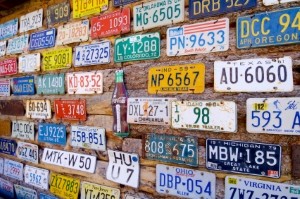
MAN Truck & Bus Deutschland GmbH, headquartered in Munich, offers one of the widest and most innovative range of products and services in the commercial vehicle industry. As well as new and used trucks, coaches, rural and municipal buses and all you need in terms of service, support and funding, MAN Germany also operates its own trucks and buses and manages vehicle fleets. Customers have access to around 350 German locations, which manage MAN vehicles and NEOPLAN buses.

Scania AB, formerly AB Scania-Vabis, is a major Swedish automotive industry manufacturer of commercial vehicles – specifically heavy trucks and buses. It also manufactures diesel engines for motive power of heavy vehicles, marine, and general industrial applications.
Founded in 1891 in Södertälje as Vabis, and in 1900 as Maskinfabriks-aktiebolaget Scania in Malmö in the Swedish province of Skane, merging in 1911, the company's head office has been in Södertälje, in Stockholm County since 1912. Today, Scania has production facilities in Sweden, France, Netherlands, India, Argentina, Brazil, Poland, and Russia. In addition, there are assembly plants in ten countries in Africa, Asia and Europe. Scania's sales and service organisation and finance companies are worldwide. In 2012, the company employed approximately 42,100 people around the world.Scania was listed on the NASDAQ OMX Stockholm stock exchange from 1996 to 2014.
Scania's logo shows a Griffin, from the coat of arms of the province of Scania (Swedish: Skåne).

Iveco, an acronym for Industrial Vehicles Corporation, is an Italian industrial vehicle manufacturing company based in Turin, Italy, and entirely controlled by CNH Industrial Group. It designs and builds light, medium and heavy commercial vehicles, quarry/construction site vehicles, city and intercity buses and special vehicles for applications such as firefighting, off-road missions, the military and civil defence.
The name Iveco first appeared in 1975 after a merger of Italian, French and German brands

|
|







German traffic laws for foreigners

German traffic laws for foreigners
Regarding the question, whether Germans are considerate or rather reckless drivers, everyone will have a different answer after a visit to Germany. That is not surprising considering there are after all 43 million registered cars in Germany, whose keepers have very little in common. Therefore, the „German driving style“ can hardly be evaluated, because there is no such thing as „a German driver“, needless to say.
According to a recent survey conducted by an insurance company, 96% of all German drivers consider themselves as „very good“ or at least „quite good“ drivers. Admittedly, the number of traffic deaths is declining every year, but nevertheless, the proportion of traffic deaths in other countries like the UK or the Netherlands is still smaller than in Germany. In spite of that, you can give credit to the Germans that only a sixth of the 43 million car drivers has got so called Punkte in Flensburg (points in Flensburg).
It is recorded on the Flensburger Konto (account in Flensburg), if someone committed traffic violations like speeding. The bigger the hazard caused by the misbehaviour, the more points will be recorded on the account. If a traffic offender has gathered 8 points, he or she must hand in the driving licence permanently. |
Driving permits from non-EU countries
So a driver’s licence which was issued within the EU is usually applicable in Germany without any problems. If you have a foreign driver’s permit, though, which was not issued in a EU country nor an EEA country, we strongly advise you to get professional consulting at your local admissions office. According to German driving laws, your current driver’s licence will be valid for the first six months you have registered a German residency, then it will expire. You will have to apply for a German driving licence in due time.
The regulations for acquiring the German driving licence depend on the country the original driver’s licence was issued in. You can find out the regulations for your country at your local driving licence office. Provided that you are not staying longer than a year in Germany, you can get a special permit there; thereby you do not have to get a new licence. This special permit must be recorded in your documents; otherwise you might get into problems at a traffic check.
|
|
|

Volvo Trucks (Swedish: Volvo Lastvagnar) (stylized as VOLVO) is a global truck manufacturer based in Gothenburg, Sweden, owned by AB Volvo. It is the world's second largest heavy-duty truck brand.
Volvo Group was re-organized on January 1, 2012 and as a part of the process, Volvo Trucks ceased to be a separate company and was instead incorporated into Volvo Group Trucks, with Volvo’s other truck brands, Renault Trucks, Mack Trucks and UD Trucks (Nissan Diesel Trucks)
The first Volvo truck rolled off the production lines in 1928, and in 2011 Volvo Trucks employed about 19,000 people around the world. With global headquarters in Gothenburg, Sweden, Volvo manufactures and assembles its trucks in 15 countries.

DAF Trucks NV is a Dutch truck manufacturing company and a division of Paccar. Its headquarters and main plant are in Eindhoven. Cabs and axle assemblies are produced at its Westerlo plant in Belgium. Some of the truck models sold with the DAF brand are designed and built by Leyland Trucks at their Farington plant in Preston, England.

Mercedes-Benz is a global automobile manufacturer and a division of the German company Daimler AG. The brand is known for luxury vehicles, buses, coaches, and trucks. The headquarters of Mercedes-Benz are in Stuttgart, Baden-Württemberg, Germany.
The name first appeared in 1926 under Daimler-Benz, but traces its origins to Daimler-Motoren-Gesellschaft's 1901 Mercedes and to Karl Benz's 1886 Benz Patent-Motorwagen, which is widely regarded as the first gasoline-powered automobile. Mercedes-Benz's slogan is "The best or nothing." Mercedes-Benz is one of the most recognized automotive brands worldwide
|
|

























